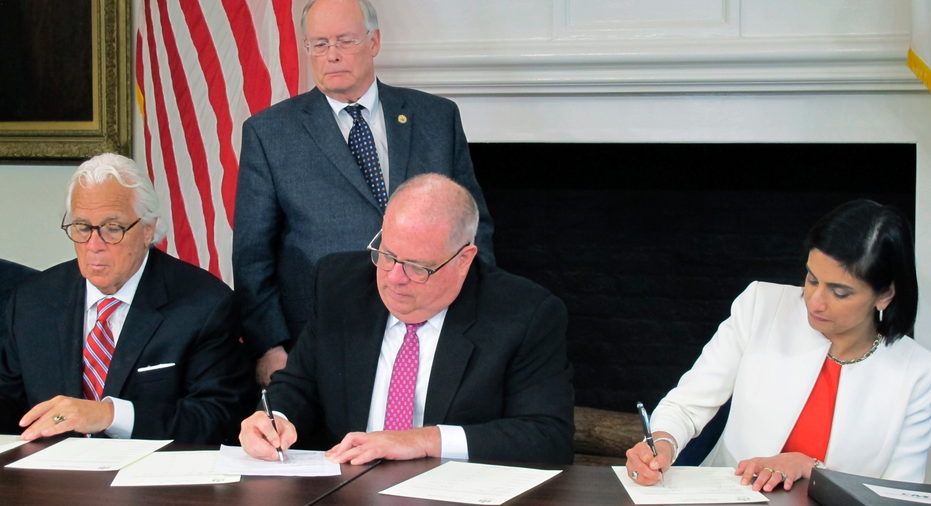Maryland governor signs federal all-payer health contract

ANNAPOLIS, Md. – Maryland Gov. Larry Hogan signed a contract with the federal government on Monday to enact the state's unique all-payer health care model, which he said will create incentives to improve care while saving money.
Hogan signed the five-year contract along with the administrator of the federal Centers for Medicare and Medicaid Services, Seema Verma.
"The Maryland Model provides incentives across the health system to provide greater coordinated care, expanded patient-care delivery and collaboration of chronic-disease management ... all while improving the quality of care at lower cost to the consumer," Hogan said.
He said the model emphasizes the quality of care over the quantity of care.
The Hogan administration said the new contract is expected to provide an additional $300 million in savings a year by 2023, totaling $1 billion in savings over five years.
Maryland is the only state that can set its own rates for hospital services, and all payers must charge the same rate for services at a given hospital. The policy has been in place since the 1970s, though Maryland modernized its one-of-a-kind Medicare waiver about four years ago to move away from reimbursing hospitals on a fee-for-service basis to a fixed budget.
Because that change focused on hospitals only, the federal government required the state to develop a new model that would provide comprehensive coordination across the entire health care system.
Under the agreement, Maryland will be relieved of federal restrictions and red tape that the other 49 states face in the Medicare program. However, the state will have to meet benchmarks of improving access to health care while improving quality and reducing costs.
Verma said the model is the first involving the Centers for Medicare and Medicaid Services that holds the state "fully at risk for total Medicare costs for all residents."
"The state and CMS have agreed on the goals, and now our job is to get out of the way and give the state the maximum flexibility to achieve success."
Maryland health secretary Robert Neall says if successful, the plan could be replicated around the country to address financial strain on Medicare. Neall described the model as being "less transactional and more just taking care of the total person."
"The incentives are going to be aligned so that it's right place, right time, right purpose, right price, instead of, 'Come back and see me in two weeks, and we'll run the same set of tests on you,'" Neall said.



















